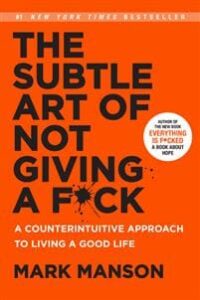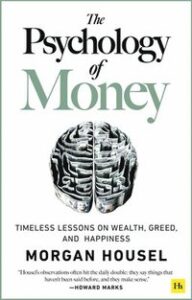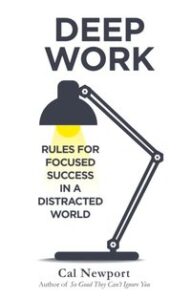Introduction
This book is not about that you should care about nothing in life. Instead, it talks about that you should be more selective and intentional of the things you care about and then stop caring about the rest. Most people today spend too much time worrying and caring about the wrong things. The questions this book helps us answer is “what should we care about and why?”. So the goal of this book is to help us define our values and what success means to us.
Chapter 1: Don’t Try
In our world today it is all about getting more and more things, such as money, material things and status. All this is saying is that you are not enough and don’t have enough. This is especially enforced when we use social media where everyone is trying to show off how great they and their lives are. But social media hides a lot and only shows the highlights of a person’s life. Most things in life are average and normal. When we start comparing ourselves with others it makes us feel like we are not enough or behind in life. So a first step is to reduce the use of social media.
The number of things we can care about is limited. The first thing to do is to decide what things not to care about. This will free up a lot of time and energy for the things we really care about. So the goal is to carefully and intentionally choose the things to care about and stop caring about the rest. You will always care about something so make sure that it is something important and meaningful.
Chapter 2: Happiness Is a Problem
Instead of looking for happiness we should instead ask ourselves “what kind of pain, struggle and problems do I want in life?” Happiness is usually the result of solving a problem or from some kind of activity that requires effort, which can be seen as a problem. Most of the time if we have a problem we like, the reward and fun is solving the problem itself.
When we reach a goal or solve a problem, we are satisfied only for short time and then we are back to normal. After each problem there is always another one. Happiness is therefor to find problems you enjoy having and solving. Don’t wish for a life without problems. That does not exist. Instead look for a life full of good problems.
Chapter 3: You Are Not Special
We are often told that we are “special” but that is just not the true. Millions of other people have already had the same problems and thoughts as we have. By believing that we are special we get entitled and our thinking can become like: “because I’m special I deserve greatness, success and to be treated differently”.
This also leads to a victim mentality, meaning that you blame others for your problems and take no responsibility. We should instead just accept that we are “normal” and that it is ok not to be “special”. You can be “normal” and happy and enjoy the boring beautiful side of life such as friendships, hobbies, talking a walk outside, having a good meal, etc.
Chapter 4: The Value of Suffering
We control what a problem means to us based on how we identify and think about it. This means that we decide if something is good or bad. If we want to change how we see problems, we first need to change our values and how we measure failure and success. This is basically what self-improvement is all about, finding better values and things to care about.
The goal shouldn’t be to stop suffering but to find a purpose to suffer for. This should be related to what you value in life and the value should be measurable and controllable. An example of a good value can be honesty where telling the truth makes you happy and it is measured by the total lies you tell. Other good values can be kindness, integrity, humility and creativity. An example of bad value is if you value being popular and want a lot of attention. The reason for this is because other peoples opinion about you is not within your control.
To find ones values one first need to become more self-aware and this can be done in three steps:
- Understand one’s emotions: Ask yourself what makes you happy, sad, etc.
- Understand the root cause of your emotions: Ask yourself why you feel certain emotions.
- .Understand your personal values: Ask yourself why you consider something a success or failure and how are you measuring it.
Chapter 5: You Are Always Choosing
We can’t always control what happens to us, but we can always choose what it means to us and how we respond to it. For example, when we get a problem we can either see it as something negative or we can see it as something positive and opportunity to learn. When we choose our own problems, it feels pleasant. When problems are forced on us, we feel stressed and unhappy.
Some people are dealing with much worse problems than others and chances are you might have been dealt a bad hand in life. If this happens to you, it is not recommended to feel sorry for yourself or blame others. The reason for this is because it does not change or improve your situation in any way and only makes you weaker. You are just making excuses and giving yourself reasons on why it is ok for you to not succeed. A better approach is instead to take responsibility for your problems and then look for how to improve your situation. The moment you take responsibility for your situation is when you get more control over it.
Chapter 6: You’re Wrong About Everything
When you are unsure about something, a suggestion is to assume that you are wrong. The reason for this is because then you stay open minded. Some questions to ask yourself are: Could I be wrong? What if I’m wrong? What would it mean if I were wrong? Would being wrong create a better or worse problem?
If you are in a situation where it’s either that you are wrong or that everyone else is wrong, then most likely you are wrong.
Chapter 7: Failure Is the Way Forward
Failure is always going to be involved when we are trying to create something new or improve our skills. The bigger the challenge the more times we will fail and make mistakes. If someone is better, then you it means they have failed more then you. Failure is always going to be present when pursing meaningful things so it’s better to welcome it and learn from it.
If you are stuck on a big task, then try to break it down into smaller steps. Then start working on just one small thing and most of the time you will get momentum from this and keep working. If this doesn’t work, then just do anything related to the task. If you are waiting for motivation and inspiration, it will most likely not come. Even when it comes, chances are that you will not do anything. Instead have discipline and take action. Action creates motivation just as motivation creates action.
Chapter 8: The Importance of Saying No
Freedom without a purpose means nothing. Therefore, it is important commit to something, this can for example be a career, city to live or a relationship. Commitment for some people might seem like limiting yourself and options in life but this is just not the case. When there are a lot of choices it can be difficult to decide and cause stress. By committing to one thing, it means saying “no” to all other things.
The only way to find time for the important things in life is to say “no” to all the things that are unrelated. We need to become comfortable in hearing and saying “no”.
Committing to master a skill will bring you more joy and make you more successful then being ok at a few skills. Committing to one partner will give more joy and happiness than all random hookups. Committing to something is where we get the most happiness out of life, this is true in skills, relationships and career.
Some Relationship Advice
Part of being in a healthy relationship is being able to say “no” without having to give too much an explanation. Saying “no” can lead to conflict but without conflict there can’t be any trust. Conflict exists to show who is there unconditionally for us and who is there only for the benefits. It just feels fake if we say “yes” and agree to everything.
A sign of an unhealthy relationship is when two people try to solve each other’s problems to feel good about themselves. You should instead focus on your own problems more and support each other when needed.
Two important things for a successful relationship are:
- How well each person in the relationship accepts responsibility
- The willingness of each person to both reject and be rejected by their partner.
If trust is broken it can only be rebuilt in two steps:
- The person who broke the trust admits his error and explains why they did it.
- The person who broke the trust builds up a track record of honest behavior over time.
Chapter 9: …And Then You Die
Life without death would be meaningless. Death is what everything in life is being measured against.
Yet, many people today are living their life like death does not exist. Thinking about death can make us realize how unimportant some of our problems really are. It can also serve as a wakeup call to stop caring so much about all the small things and instead focus on what’s really important.
“Death is the only thing we know with certainty. And as such, it must be the compass by which we orient all our other values and decisions.”
“The fear of death follows from the fear of life. A man who lives fully is prepared to die at any time.”





